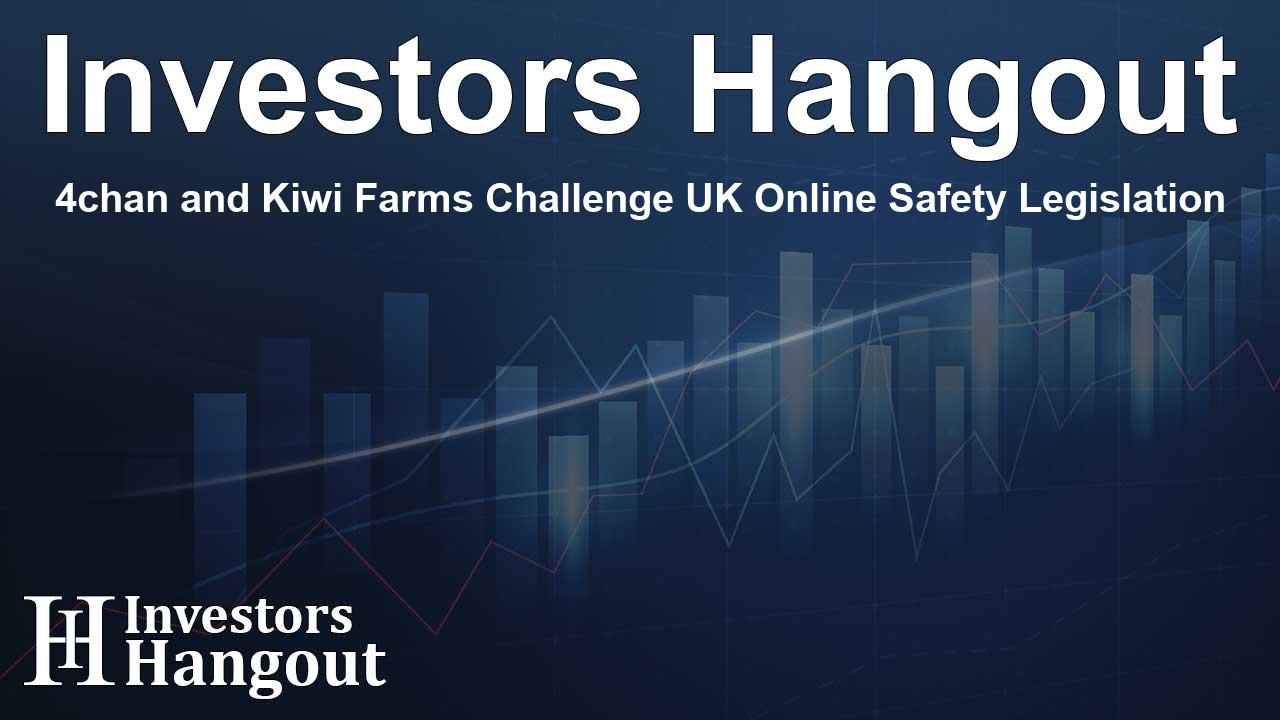4chan and Kiwi Farms Challenge UK Online Safety Legislation

Legal Action Against UK Regulator Ofcom
In a bold move, U.S.-based internet forums 4chan and Kiwi Farms have initiated a lawsuit against Britain's media regulator Ofcom, raising critical questions about online safety regulations. This lawsuit adds another layer to the already heated debate between American tech platforms and European regulatory bodies.
Allegations of Free Speech Violations
The lawsuit, filed in the U.S., argues that Ofcom's enforcement of the UK's Online Safety Act infringes upon the fundamental rights to free speech as protected by the U.S. Constitution. This legal action represents a significant flashpoint in the ongoing struggle between entities like 4chan and government agencies that seek to implement measures they believe will protect users from potential online harm.
Understanding the Online Safety Act
The Online Safety Act was designed with the intent to create a safer online environment, compelling platforms to take measures to shield users from harmful content. As part of these regulations, Ofcom has indicated that any online service with ties to the UK must adhere to its rules—even those services operating solely outside British borders.
Implications for U.S. Tech Companies
Critics, including influential political figures, express concerns that this law could stifle free expression, particularly affecting American companies. Many view it as an unfair burden on U.S. entities, potentially altering the landscape of how tech companies operate internationally.
Ofcom's Stance on Enforcement
Ofcom has stated its awareness of the legal challenges posed by 4chan and Kiwi Farms. A spokesperson for the agency affirmed that the Online Safety Act mandates compliance from any platform deemed connected to the UK market, regardless of its headquarters. The Act allows for hefty fines—up to 10% of global revenue—for those failing to meet its obligations.
Service Definitions and Compliance Challenges
This enforcement raises essential questions regarding what constitutes a service connected to the UK. With both 4chan and Kiwi Farms claiming no operational presence beyond the U.S., the implications of compliance with the Act remain a significant point of contention.
Recent Developments in Encryption Laws
Adding to the complexity of this situation is the recent victory for Apple Inc., which faced pressure from the UK government regarding encryption backdoor access to its iCloud services. The Trump administration’s intervention reportedly led to the abandonment of this demand, showcasing a growing clash between tech giants and governmental regulations.
Canada's Approach to Internet Regulation
The UK isn't alone in considering stringent internet regulations. Similar dialogues are taking place in Canada, where discussions around creating a framework to regulate and safeguard online content are underway. Such moves highlight a global trend towards enhancing online safety, albeit met with resistance from various sectors, especially tech companies.
What Lies Ahead for Online Platforms?
As the lawsuit unfolds, it presents an opportunity to scrutinize the balance between online safety and free expression. Stakeholders, ranging from internet users to policymakers, advocates, and tech companies will be watching closely, as the case could set significant precedents concerning online governance.
How Tech Companies Can Prepare
In anticipation of potential regulatory changes, tech companies are encouraged to develop robust compliance strategies that address safety concerns without infringing on user rights. Ignoring regulatory developments may prove detrimental to their operations, especially in international markets.
Frequently Asked Questions
What is the main focus of the lawsuit by 4chan and Kiwi Farms?
The lawsuit primarily challenges the enforcement of the UK's Online Safety Act, claiming it infringes on free speech rights.
What does the Online Safety Act intend to achieve?
The Online Safety Act seeks to protect users from harmful online content by imposing compliance obligations on tech platforms.
How does Ofcom justify its jurisdiction over non-UK companies?
Ofcom claims that any service with a significant number of UK users is required to comply, regardless of where it's based.
What potential penalties could companies face under the Online Safety Act?
Penalties could include fines of up to 10% of a company's global revenue for non-compliance.
What implications does the lawsuit have for the future of internet regulation?
The outcome could influence how other countries approach internet regulations, potentially affecting global standards for online safety and freedom of speech.
About The Author
Contact Owen Jenkins privately here. Or send an email with ATTN: Owen Jenkins as the subject to contact@investorshangout.com.
About Investors Hangout
Investors Hangout is a leading online stock forum for financial discussion and learning, offering a wide range of free tools and resources. It draws in traders of all levels, who exchange market knowledge, investigate trading tactics, and keep an eye on industry developments in real time. Featuring financial articles, stock message boards, quotes, charts, company profiles, and live news updates. Through cooperative learning and a wealth of informational resources, it helps users from novices creating their first portfolios to experts honing their techniques. Join Investors Hangout today: https://investorshangout.com/
The content of this article is based on factual, publicly available information and does not represent legal, financial, or investment advice. Investors Hangout does not offer financial advice, and the author is not a licensed financial advisor. Consult a qualified advisor before making any financial or investment decisions based on this article. This article should not be considered advice to purchase, sell, or hold any securities or other investments. If any of the material provided here is inaccurate, please contact us for corrections.
